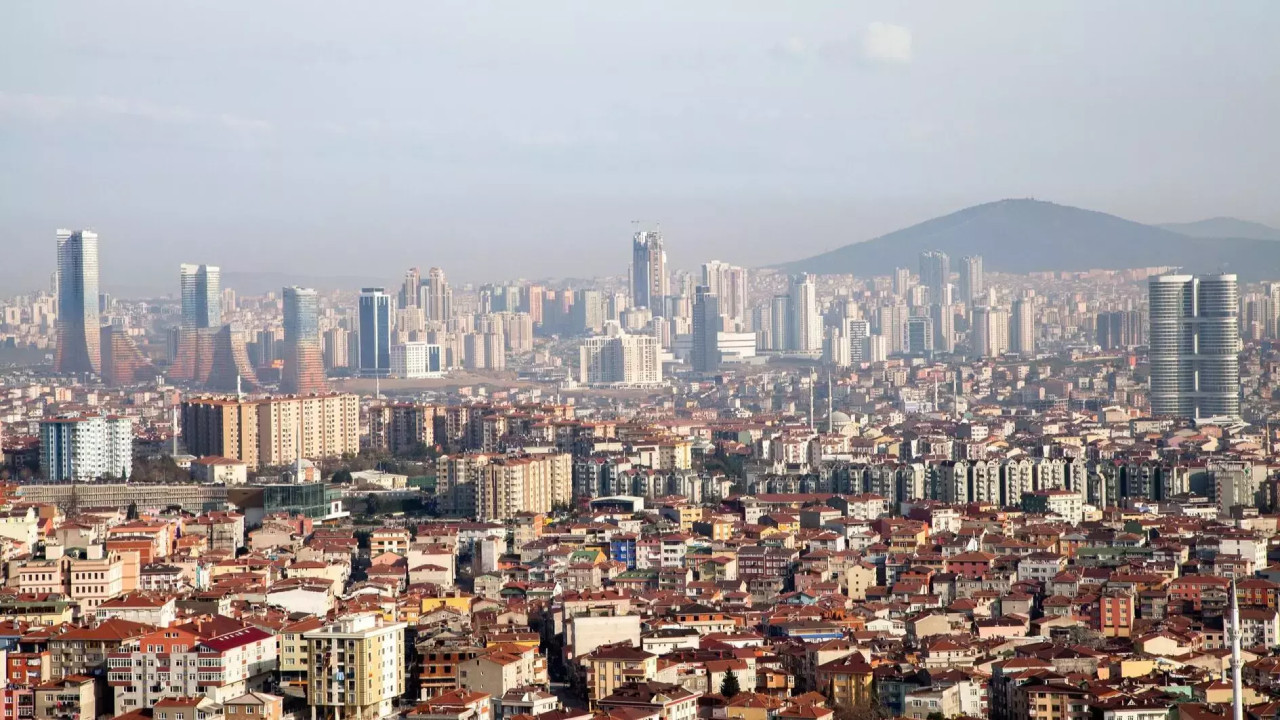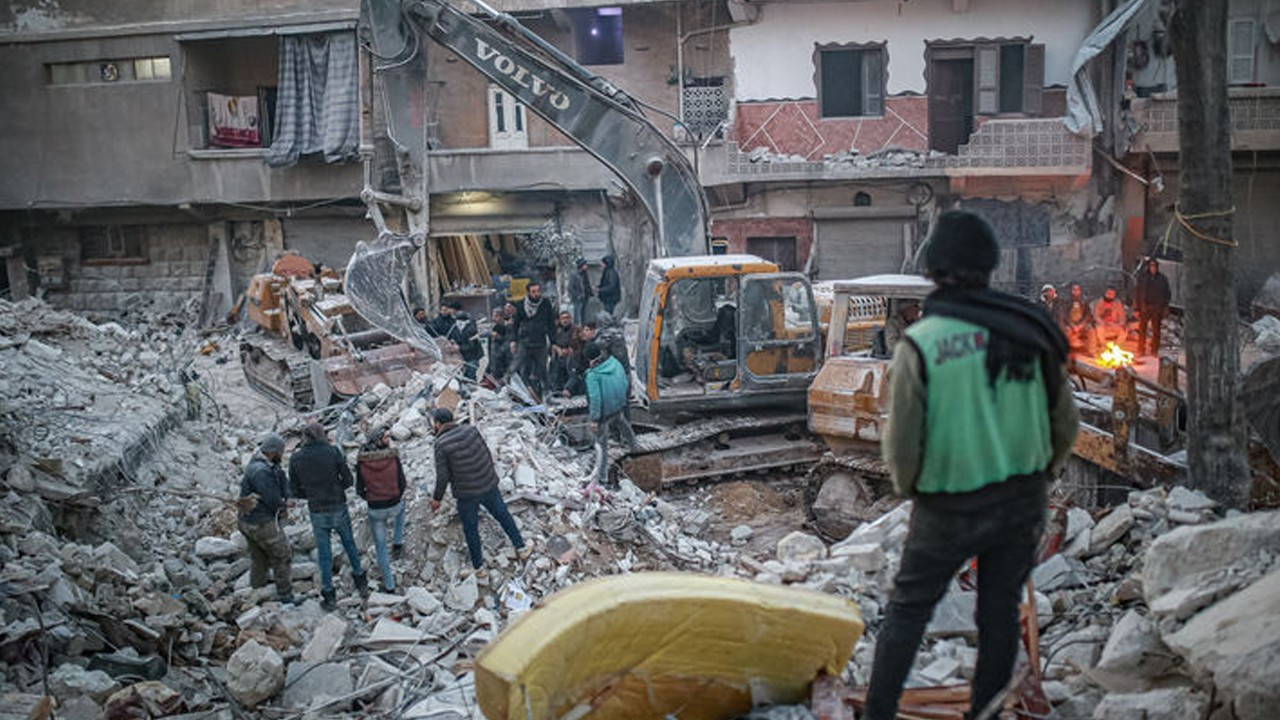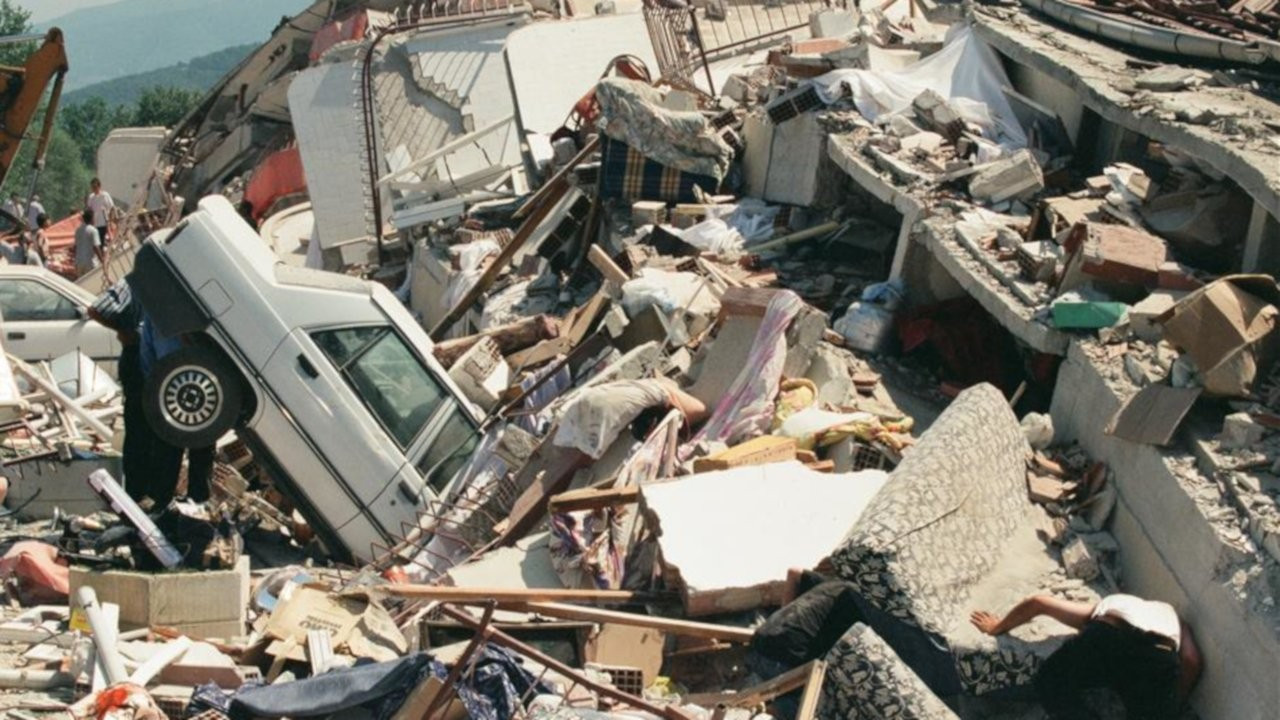Experts warn against chemical-related dangers of impending Istanbul earthquake
The Chamber of Chemical Engineers of Istanbul drew attention to the chemical-related risks of a potential earthquake. Accordingly, the megacity must prepare to minimize collateral damage in an earthquake that the experts estimate could result in massive fatalities.
Selim Üzüm / Gazete Duvar
The Istanbul branch of the Chamber of Chemical Engineers (KMO) on Aug. 17 published a report titled "Dangers from Chemicals Following an Earthquake in Istanbul."
The report coincided with the 25th anniversary of the Marmara Earthquake, which was a 7.4-magnitude quake that hit Turkey's north-western Marmara region in 1999 and killed at least 18,000.
The report acknowledged the years that have passed since, and drew attention to the chemical risks associated with the “Great Istanbul Quake” experts warn is impending.
The report included predictions and analyses of the secondary dangers that could arise from the chemicals present in the city after a potential earthquake.
The report emphasized that the exact amount of chemicals produced, transported, stored, and consumed in Istanbul within a year remained unknown. It pointed out the lack of a centralized institution collecting this data, making risk assessments only "estimated" at best.
The analysis detailed the risks of secondary disasters, including fires, explosions, chemical and gas leaks, floods, epidemics, and environmental pollution, that could result from the chemical stockpiles in the city after an earthquake.
The report referenced the 50 tons of diesel fuel spilled into İzmit Bay following the Marmara earthquake on August 17, 1999, which increased the concentration of toxic substances in the bay over time.
Accident scenarios and models included in the report warned that damage to or leakage from Toluene Diisocyanate (TDI) tanks stored in Istanbul and Kocaeli during an earthquake could cause permanent organ damage, respiratory issues, asthma attacks, and skin irritations. The report stated that all living beings within 50 meters of a TDI tank would die, with the risk extending up to 80 meters.
A similar model was created for LPG tanks in Ambarlı, Marmara Ereğlisi, Kocaeli Yarımca, and Körfez districts in the Marmara region. According to this model, an explosion could generate a fireball reaching up to 1,000 meters. The heat energy from this fireball could be felt by anyone within 2,500 meters of the tank, potentially causing deaths and first-degree burns.
The report concluded with potential solutions and recommendations. Accordingly, local administrators were encouraged to create a "Hazardous Chemical Inventory" on a provincial and regional basis to identify emissions and waste amounts at every stage of production, with a focus on protecting lives and property during natural disasters and potential accidents.
Additionally, chemical production and storage facilities should be relocated outside the city, and removed from residential or flood-prone areas.
The Istanbul Fire Department’s capacity was to be enhanced to respond to chemical accidents.
Istanbul is expected to be hit by an earthquake with a magnitude above 7.0 in the upcoming six years at a probability of 64 percent, according to Professor Doğan Kalafat, manager of the Kandilli Observatory and Earthquake Research Institute's Regional Earthquake-Tsunami Tracking Center.
Most experts emphasized that the quake could result in catastrophic destruction and a major death toll if the current urban policies are maintained.
The most recent report by the Istanbul Planning Agency (IPA) operating under the Istanbul Metropolitan Municipality states that 20 percent of Istanbul's buildings would be heavily damaged, and 1.3 of the 6.8 million buildings in the megacity were at risk of collapse in a 7.5-magnitude earthquake.
Istanbul Mayor Ekrem İmamoğlu has said that 90,000 buildings have a risk of entirely collapsing in the megacity and that the cost of making them earthquake-resistant can exceed 360 billion liras.
(English version by Ayşenaz Toptaş)


 Expected major quake and high rents push people out of IstanbulEconomy
Expected major quake and high rents push people out of IstanbulEconomy Some 17,343 quakes hit Turkey in first six months of 2024Domestic
Some 17,343 quakes hit Turkey in first six months of 2024Domestic 24th anniversary of Marmara Earthquake revives Istanbul's seismic concernsDomestic
24th anniversary of Marmara Earthquake revives Istanbul's seismic concernsDomestic